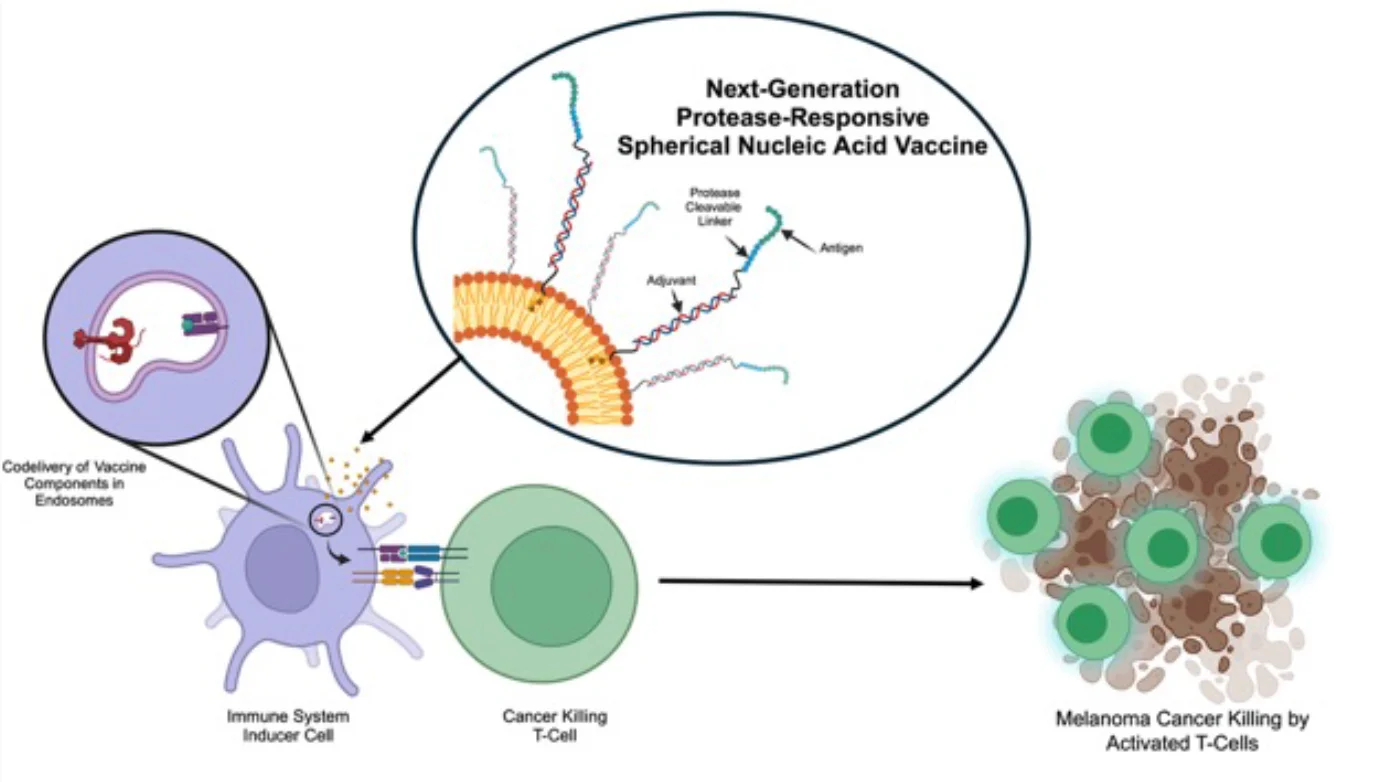Next-Generation Structural Nanomedicines for the Treatment of Skin Cancer

Researchers in Professor Chad Mirkin’s lab at Northwestern University are developing spherical nucleic acid nanomedicines for the treatment of aggressive skin cancers.
The Mirkin group at Northwestern University is developing design rules for the preparation of the most potent nanodrugs that will drive a patient’s own immune system to eradicate aggressive diseases of the skin like melanoma.
Melanoma stands out as the most aggressive and lethal form of skin cancer, affecting more than one million men and women in the U.S. alone. Surgery, chemotherapy, and radiation are treatment options for early-stage diagnoses but are insufficient for advanced cases. Immunotherapies, which leverage the body’s own immune system to attack cancers, are promising for advanced melanoma treatment, since these tumor types are known to be immune-responsive. Immunotherapies called immune checkpoint inhibitors are already used in the clinical setting. However, their efficacy is underwhelming, with current five-year survival rates remaining at ~35% for stage 4 melanoma. Dr. Chad Mirkin’s project will develop new strategies to overcome current barriers in the landscape of immunotherapeutic options for advanced melanoma. Towards this goal, the Mirkin group is designing and synthesizing nanostructured cancer vaccines, based on the spherical nucleic acid (SNA) platform. This platform can be chemically programmed to synergistically release vaccine components at optimal times and locations in cells to elicit a more potent and sustained immunotherapeutic response, enhancing human health.

